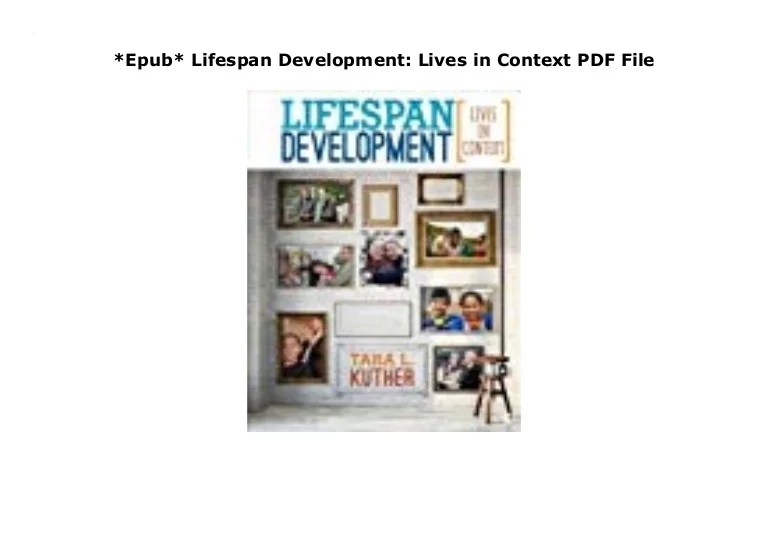Lifespan development lives in context 3rd edition – Embarking on a journey through Lifespan Development Lives in Context, 3rd Edition, readers will discover a captivating and authoritative exploration of human development across the lifespan. This comprehensive guide delves into the intricate interplay between individual lives and the multifaceted contexts that shape them, providing a profound understanding of the complexities of human growth and change.
From the earliest stages of infancy to the twilight years of old age, this volume meticulously examines the key milestones, challenges, and transitions that characterize each phase of the lifespan. It illuminates the profound influence of family, culture, socioeconomic status, and other contextual factors on developmental outcomes, drawing upon cutting-edge research and real-world case studies to illustrate these concepts.
Lifespan Development Definition and Overview

Lifespan development refers to the continuous process of physical, cognitive, and psychosocial changes that occur throughout a person’s life, from conception to death. It encompasses a series of distinct stages and transitions, each characterized by unique developmental milestones and challenges.
Key stages of lifespan development include infancy, early childhood, middle childhood, adolescence, young adulthood, middle adulthood, late adulthood, and old age. Each stage is marked by specific physical, cognitive, and social-emotional changes, as well as developmental tasks that individuals must navigate.
Contextual Influences on Development
Development is not solely determined by biological factors but is also profoundly influenced by the context in which individuals live and grow. Contextual factors include family, culture, socioeconomic status, and social and environmental conditions.
- Family: Family provides a nurturing environment, emotional support, and opportunities for learning and socialization.
- Culture: Culture shapes values, beliefs, and behaviors, influencing individuals’ development and life experiences.
- Socioeconomic status: Economic resources, education, and access to healthcare can significantly impact health, cognitive development, and overall well-being.
Theories of Lifespan Development, Lifespan development lives in context 3rd edition
Various theories attempt to explain the mechanisms and processes underlying lifespan development.
- Piaget’s cognitive development theory focuses on the qualitative changes in thinking and problem-solving abilities that occur throughout childhood and adolescence.
- Erikson’s psychosocial development theory emphasizes the social and emotional challenges and conflicts that individuals face at different stages of life.
Methodologies for Studying Lifespan Development
Researchers use various methods to study lifespan development, including:
- Longitudinal studies: Track individuals over time to observe developmental changes.
- Cross-sectional studies: Compare individuals of different ages at a single point in time.
Each approach has strengths and limitations, but both contribute to our understanding of lifespan development.
Applications of Lifespan Development Knowledge
Knowledge of lifespan development has practical applications in various fields, such as:
- Education: Informing curriculum design and teaching methods to meet the developmental needs of students.
- Healthcare: Promoting healthy aging and providing age-appropriate healthcare interventions.
- Social policy: Developing programs and policies that support healthy development and well-being across the lifespan.
FAQ Guide: Lifespan Development Lives In Context 3rd Edition
What are the key stages of lifespan development?
Lifespan development is typically divided into eight stages: infancy, toddlerhood, early childhood, middle childhood, adolescence, early adulthood, middle adulthood, and late adulthood.
How do contextual factors influence development?
Contextual factors such as family, culture, and socioeconomic status can have a significant impact on developmental outcomes. For example, children who grow up in poverty may be more likely to experience developmental delays than children who grow up in more affluent families.
What are some major lifespan development theories?
Some of the most influential lifespan development theories include Piaget’s cognitive development theory, Erikson’s psychosocial development theory, and Vygotsky’s sociocultural theory.
How can lifespan development knowledge be applied in real-world settings?
Lifespan development knowledge can be applied in a variety of real-world settings, such as education, healthcare, and social policy. For example, understanding the developmental needs of children can help educators create more effective learning environments.


